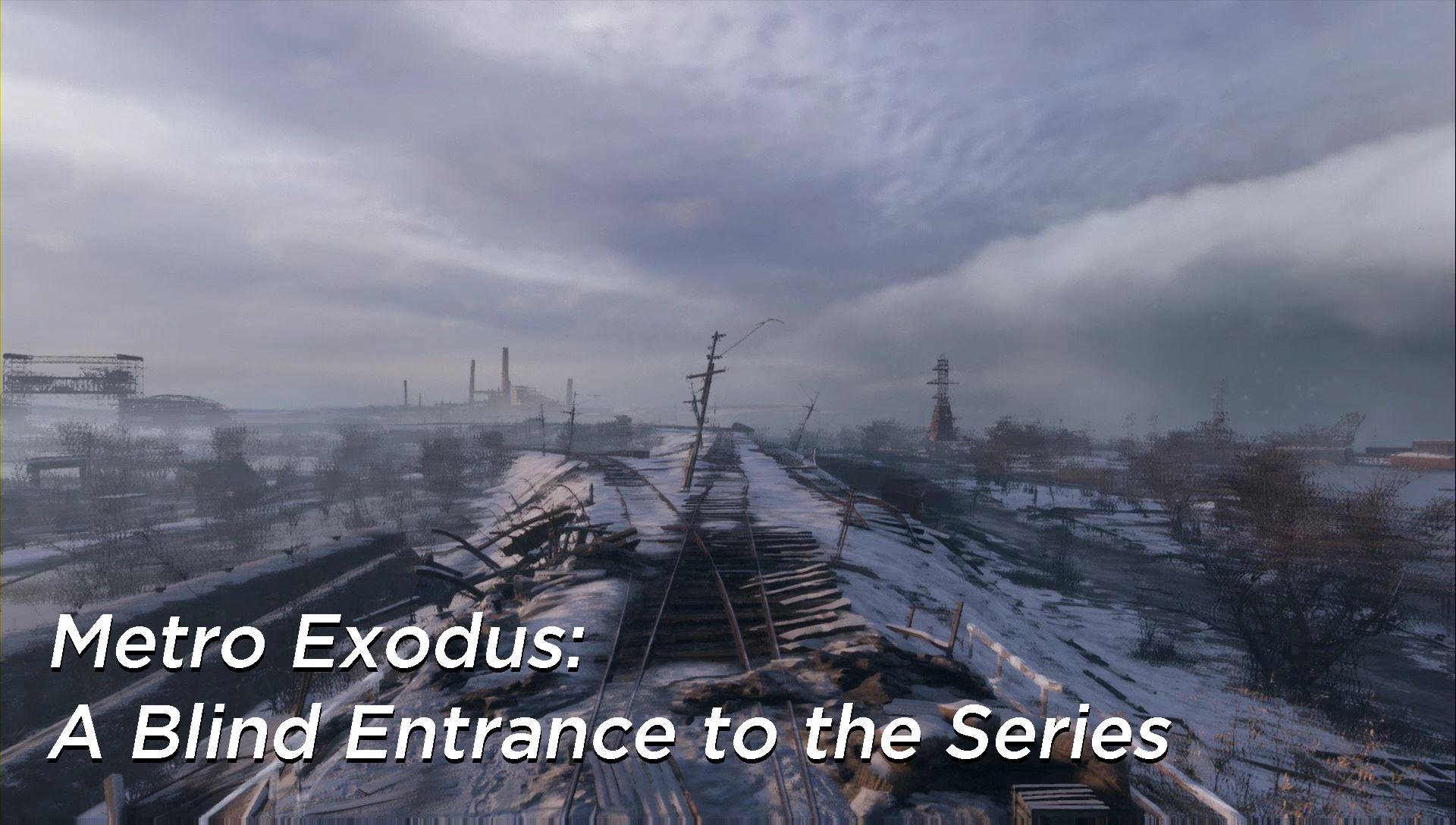I’ve long found myself intrigued by the premise of the Metro series, but for one reason or another, I’ve simply never taken the plunge into the post-nuclear war wasteland of Moscow. Metro Exodus’ more wide open frozen landscape and apparent new exploration focus, drew me more so than it’s predecessors, so I decided to finally try my hand with the series.

With little knowledge of the series’ settings, characters, and story, it’s safe to say a bit hesitant jumping into the third game. Having zero experience with the older titles, remakes or novel series these games are based on I didn’t have the background knowledge that is sometimes demanded from sequels of an established series. I had refrained from looking up or watching much past the announcement trailer even. I immediately was surprised by how wrong my preconceived notions of what Exodus was going to be.
I expected a Fallout style of experience with a Moscow setting during winter, full of an open world, exploring and scavenging, and tailoring my time in this game with stat trees and skills. Instead of the plethora of ammo and gear I was expecting, for the first few hours I had to be careful, as reserves of both ammunition and the crafting materials to make more ammo were scarce, making me opt for of a stealthy Metal Gear approach: sticking to the shadows and assassinating as I went, looting bodies and only resorting to the loud shooting when I had to.

When I started, the last games I was expecting to be reminded of were Sly Cooper 2-4. While I assumed I was going to experience an open world title akin to the previously mentioned Fallout games, I instead was treated to fleshed out smaller open areas, with each portion of the game taking place in a whole new location, completely set apart from the one before it. Each place had their own sets of side missions to complete, people to interact with, areas to plunder, and enemies to dispatch, a style that I most recognize from the aforementioned Sly series.

One thing I did get right though, is there would be a sort of crafting system, and I will say, developer 4A Game’s approach to weapon attachments has become one of my favorite of any series. I found something exciting about deconstructing every new weapon I stumbled upon with a bright orange attachment on its silhouette, as well as the underlying premise of a new goodie to stick onto my arsenal going forward. What I find most enjoyable about this method, is I don’t have to spend time searching for little knick-knacks just to find a new scope, or find that because I made some ammo, I now can’t make the stock. Instead, there were rewards for finding weapons around the map or off a body. I would be perfectly fine if more developers adopted this similar mechanic going forward.
My biggest swing ‘n a miss has to have been my assumption of some sort of leveling system in Metro Exodus. Seeing as RPG mechanics such as crafting, leveling, and skill trees seem to be present in every genre nowadays, with shooters being some of the biggest adopters of said systems, it was a splash of cold, radioactive Russian water in my face when skill trees and leveling were absent. There was a brief moment of sadness which quickly followed with a refreshing feeling, almost like the first time I had played a shooter without a regenerating health bar after so many games started doing that. As a rather big fan of grinding and the RPG genre, I would be lying if I didn’t feel a small twinge of disappointment that a skill tree or level progression is absent, but the lack of these systems reminded me that shooters once existed without them and they are still great.
While with the gameplay, I felt remaining fairly disconnected from the media blitz for this game only improved my overall experience and left me with some unexpected revelations, my lack of knowledge did prove to be a detriment when connecting with the characters and story. I had trouble caring much about the characters on your team, which certainly wasn’t helped by a silent protagonist and the game only recapping events that happen between “levels.” I can only imagine that longtime fans of the books and games felt much more of an emotional punch when you leave the Metro in the early parts of the game, which I missed out on. This situation could be applied to a number of events that occur throughout, and, I want to make this very clear, is no fault of the developers or their method of storytelling, it’s a feeling reminiscent of being in a group of friends and, because you passed on going to the party last weekend, all the inside jokes your friends are telling now are simply missed on you. You can still chuckle and enjoy them, but it just isn’t the same.

When all is said and done, my time with Metro Exodus was still one full of surprises and intrigue, just more geared towards the gameplay side of things as opposed to the story. Having no real background knowledge going in certainly left me with more questions, but that is unavoidable when jumping in late to a series In that same breath though, I am more interested now having played Exodus, to try my hand at the remakes of the previous two titles and maybe even the books. Metro Exodus is a game that even new players will find fun in playing, with or without having experienced any of other lore of this world.
This game was covered on a retail PlayStaiton 4 Pro with code provided by a PR representative of the title






